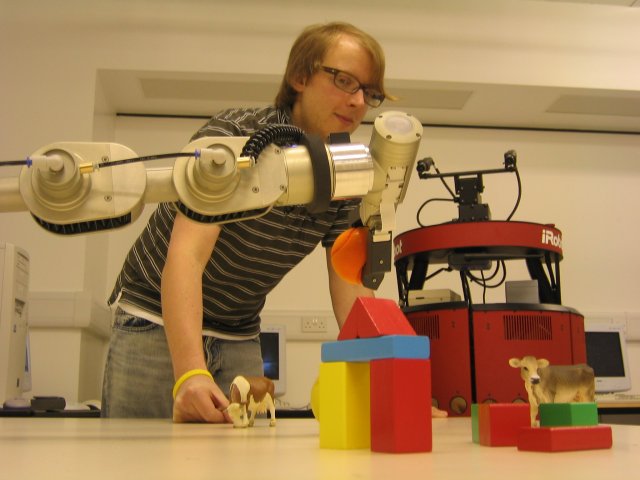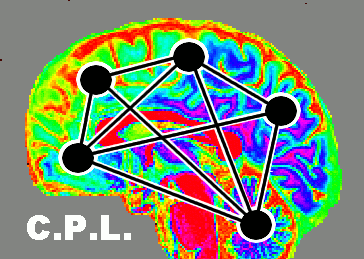







Submission instructions are here.
Important dates are here.
Papers are invited from researchers in animal cognition, researchers
in AI/Robotics, and others with relevant contributions, e.g.
researchers in linguistics, philosophy, neuroscience, and other
fields.
The most highly valued papers for this symposium will be those that
identify new ways or not yet widely understood
ways in which research in AI/Robotics can inspire
research on natural cognition. New examples, or improved versions of
older types of inspiration are also welcome, as are innovative
discussions of
methodology.
EXAMPLES
Possible types of contribution include:
-
Type 1: a
new analysis of how difficult questions about cognition in
biology or psychology might potentially be answered, or answers
brought closer, by work in AI or computer science -- including using
concepts, theories, working models to suggest new questions, or new
answers.
Illustrative, but not definitive, examples:
-
arguing that a theory proposed to explain some aspect of natural
cognition cannot do so because it does not address relevant issues
that have been exposed in AI/Robotics)
-
pointing out questions about alternative designs that have been
proposed in AI/Robotics that suggest new research questions
regarding natural cognition.
-
describing some new theory in AI that purports to explain a range of
phenomena that have been noted but not explained in animal/human
cognition.
Papers from biologists, psychologists, neuroscientists, etc.,
presenting 'Requests for help from AI' will be specially welcome, as
will 'Challenges to specific AI models and theories from
biology/natural cognition'.
-
Type 2: explaining
how a problem discovered in robotic research
suggests that there must be an analogous problem for humans or
other animals and showing how the AI analysis can suggest new
investigations about the scope of cognition in those animals, the
mechanisms involved in those forms of cognition, how the mechanisms
evolved in the species, and how the mechanisms develop in
individuals;
-
Type 3: analysis of requirements for hypothesised
information-processing capabilities that involve new forms of
computation, new forms of representation, or new types of virtual
machine, suggesting new research questions for brain science or
evolutionary theory (e.g. how could neural mechanisms support this
type of information-processing?);
Such submissions should, if possible,
outline ways of making progress, e.g. by
doing specific new experiments, or by comparing competences of
different species in specific ways, or by building models that
shed new light on the problems.
-
Type 4: reporting on work already done that is not directly
concerned with cognition, but could be relevant, e.g. new
explanations of the operation of sensors and effectors, or new
research on brain mechanisms that could underpin cognition.
In some cases, submissions that could drive future research
crossing the divide between artificial and natural cognition will be
favoured above reports on completed work (especially if published
elsewhere), because we wish the symposium to provoke new research in
this area.
However, submission of outstanding completed work is also
encouraged, especially if the submission includes suggestions for
further work contributing to the study of natural cognition.
A template reviewing form is here.
An illustrative list of example topics is here.
REVIEWING
Reviewers will be asked to make use of the list of priorities above.
Authors are asked to indicate which of the priorities they aim to
address.
Reviewers of the long papers will attempt to sort them into the
following categories:
1. Outstanding and directly relevant papers of types 1, 2, or 3, to
be accepted for presentation at the symposium.
2. Excellent and relevant papers for which there will not be
presentation time (because there are too many high quality
submissions), but will be included in the symposium proceedings.
(We shall try to arrange a time at which all authors of those papers
can introduce themselves and announce the topics of their papers.
They can also join the poster presentation.)
3. Reject on grounds of poor quality or poor relevance.
Reviewers of poster submissions will be asked only to recommend
acceptance or rejection with a crude numerical grading to be used in
case we have a problem of limited space for posters.
Submissions and enquiries to
aiib10 [AT] cs.bham.ac.uk
Last updated: 9 Dec 2009 ;10 Dec 2009; 25 Jan 2010
Installed: 30 Jul 2009
Maintained by
Aaron Sloman
School of Computer Science
The University of Birmingham















